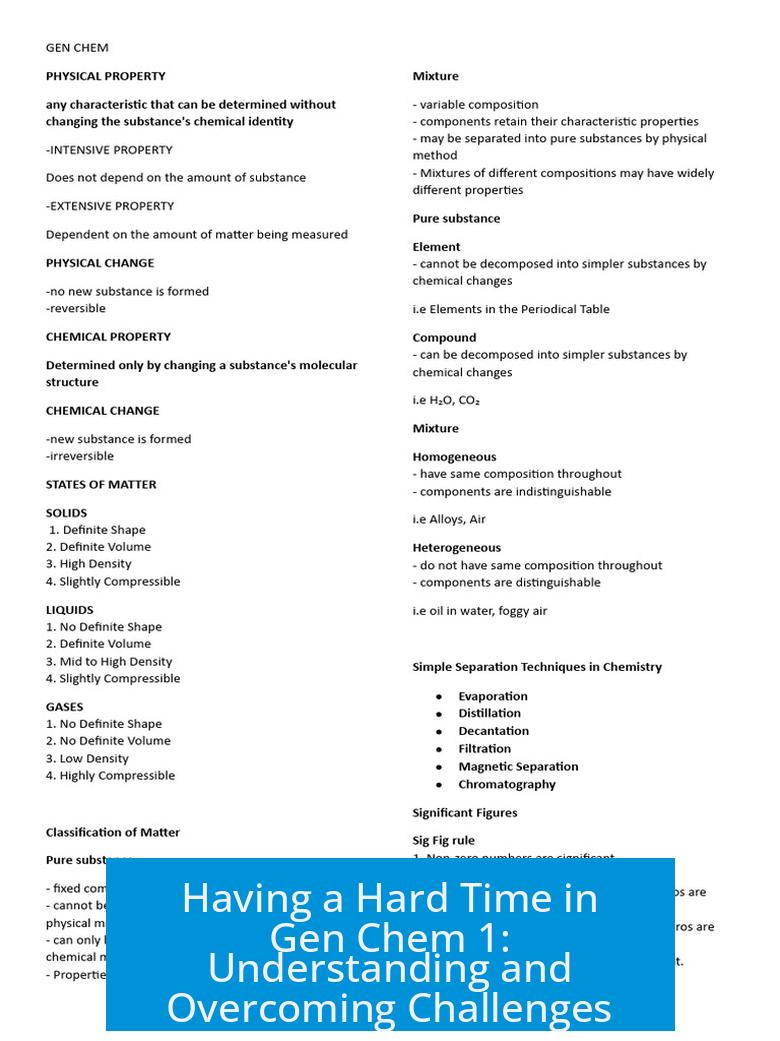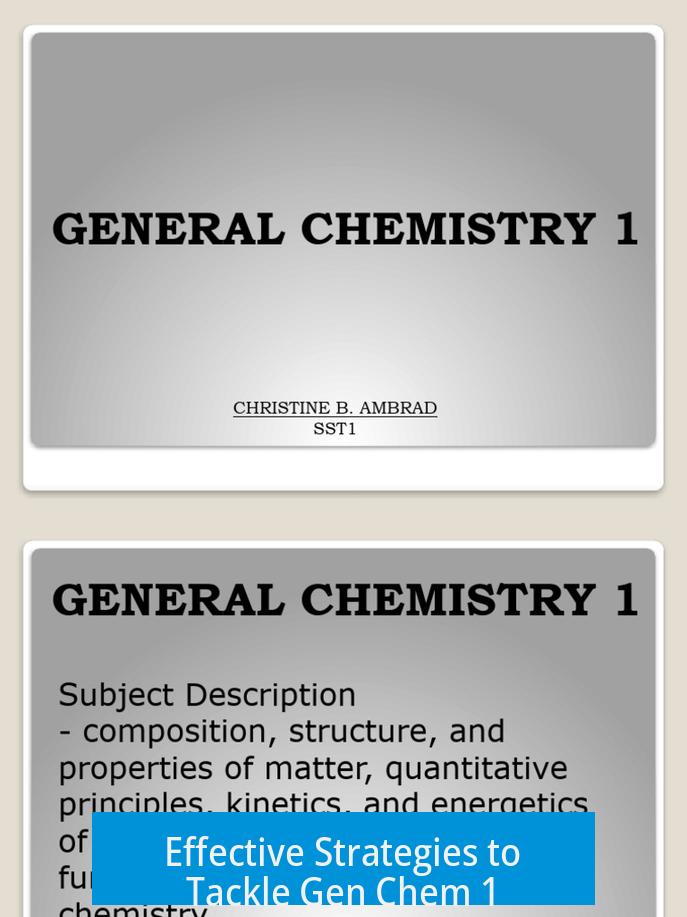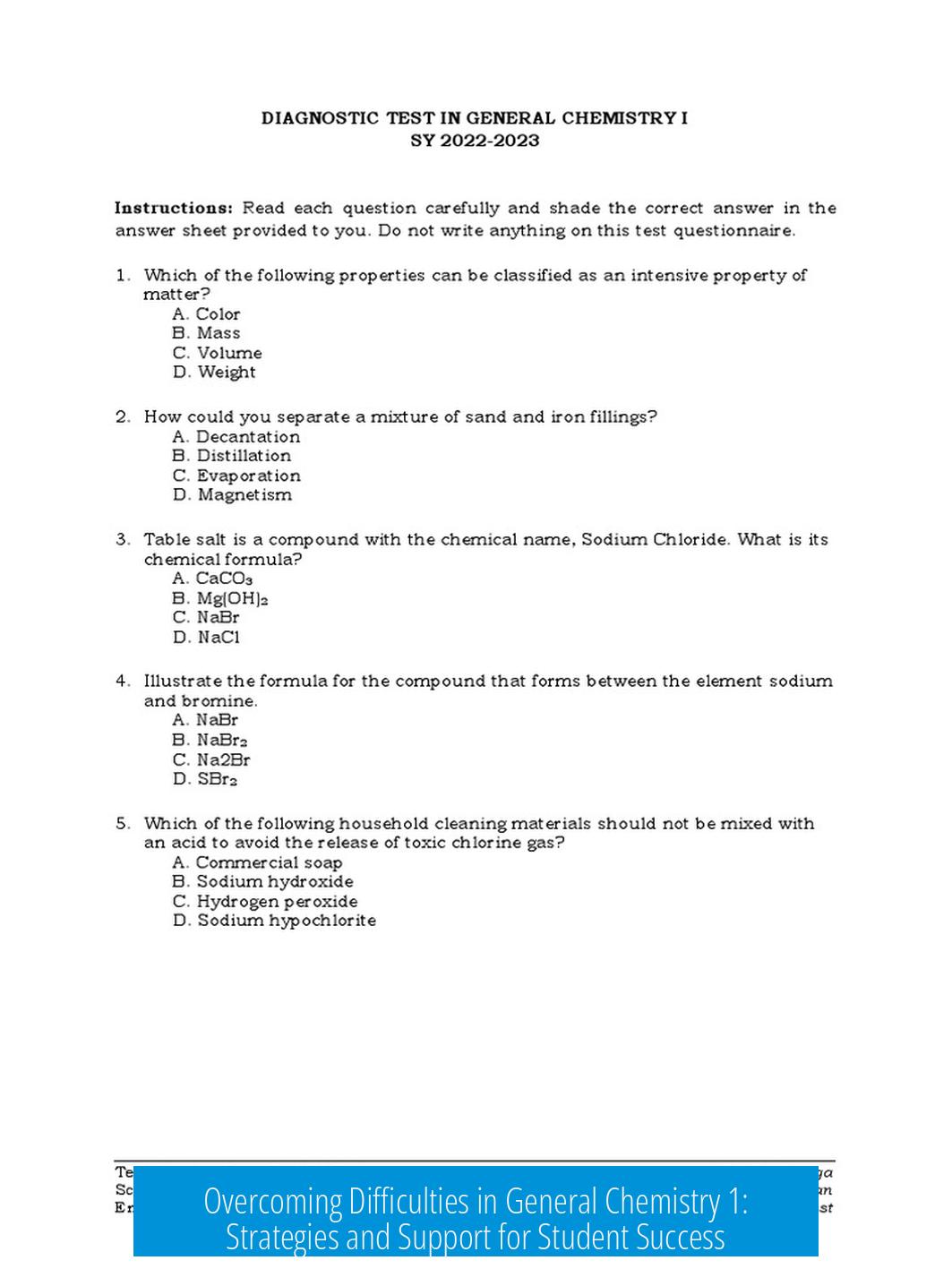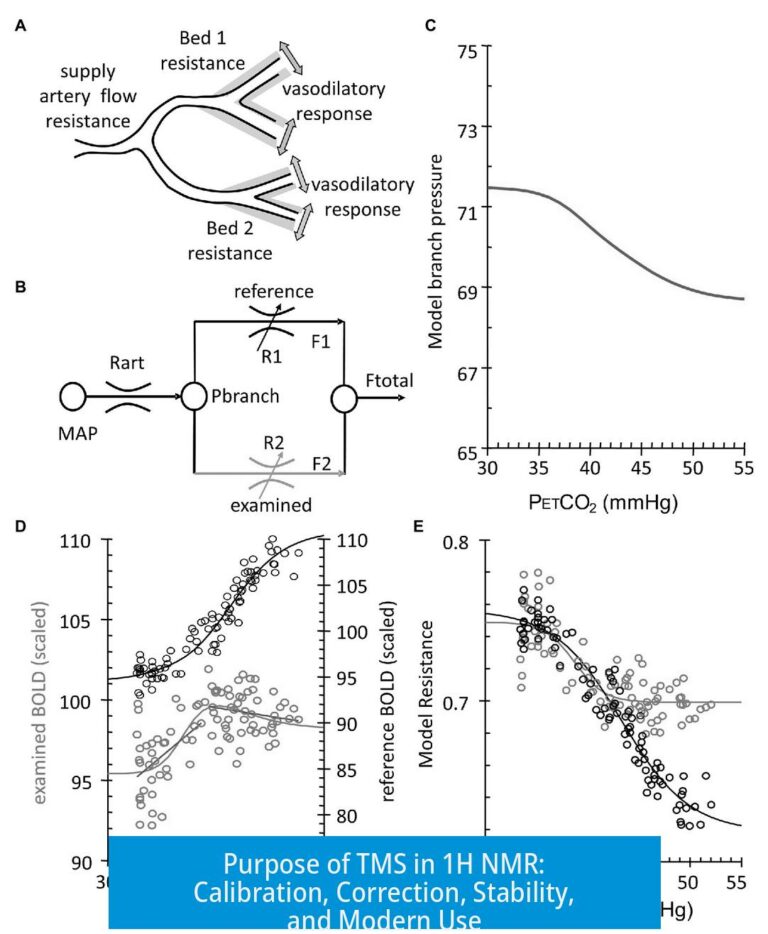Having a Hard Time in Gen Chem 1: Understanding and Overcoming Challenges

General Chemistry 1 (Gen Chem 1) is widely recognized as a challenging introductory course that often serves as a critical stepping stone for science, engineering, and medical students. Many face considerable difficulty due to the course’s demanding content and expectations. However, with the right strategies and mindset, students can overcome these hurdles and succeed.
Why Is Gen Chem 1 So Hard?
General Chemistry 1 is frequently described as a “weed-out” course. It acts as a filter to determine who can handle rigorous scientific coursework. At many institutions, students in diverse fields such as engineering, medicine, and science must pass it to advance.
- Gen Chem 1 requires understanding complex concepts such as atomic structure, stoichiometry, thermodynamics, and chemical bonding.
- The mathematical aspect, including algebra and problem-solving skills, poses additional challenges.
- The course demands consistent dedication and comprehension, not merely memorization.
Students often find that liking science does not guarantee smooth progress through the course. Difficulties arise even for those who enjoy chemistry but struggle with its abstract concepts or calculations.
Common Emotional and Mental Challenges
Students often feel overwhelmed or frustrated due to the fast pace and volume of material. Cases of anxiety and loss of confidence are frequent.
- Feeling behind can lead to stress and burnout.
- Repeated attempts at the course are common, as understanding takes time and persistence.
- Maintaining motivation and a positive mindset is crucial to navigating setbacks.
Effective Strategies to Tackle Gen Chem 1

Break Down Complex Concepts
One effective approach is dividing the material into manageable sections. Students should:
- Focus on mastering smaller components before moving to more complex topics.
- Use visual aids such as diagrams, flowcharts, or tables to clarify processes.
- If concepts remain unclear, break them down further or seek alternative explanations.
Practice Problem Solving
Active problem solving is vital for grasping chemistry. Students should:
- Complete numerous practice problems, especially those involving conversions and calculations.
- Aim to perform problems correctly without assistance to gain confidence.
- Recognize patterns in problems to streamline the solving process.
Regular engagement with problems makes equations and concepts become familiar rather than intimidating.
Use Flashcards and Memorization Effectively
Memorization assists in retention of essential data like polyatomic ions, formulas, and charges. Helpful tips include:
- Creating flashcards with chemical names on one side and formulas or charges on the other.
- Practicing flashcards daily to reinforce memory.
- Writing down troublesome items repeatedly to strengthen recall.
This method addresses the need to quickly recall data used in larger problem-solving contexts.
Explain Concepts Aloud
Explaining material to oneself or others solidifies understanding.
- Teaching a concept, even to an imaginary audience or pet, forces clearer thinking.
- Connecting formulas and equations to the underlying concept aids comprehension.
This practice reveals gaps in knowledge and encourages active learning rather than passive reading.
Maintain a Positive Mindset and Take Care of Mental Health
Keeping a healthy mental state influences academic success. Students should:
- Combat negative thoughts immediately and replace them with encouraging statements.
- Practice mindfulness or meditation to improve focus and reduce stress.
- Acknowledge small victories to build momentum.
- Seek support from friends, family, or counselors when overwhelmed.
External Factors Affecting Success
Instructor Quality and Teaching Methods
The effectiveness of a professor can significantly impact a student’s grasp of the material.
- Clear explanations, approachable attitude, and helpful feedback help student learning.
- Students should not hesitate to reach out to instructors or teaching assistants.
Mathematical Preparedness
Algebra and basic math skills are prerequisites for success.
- Students weak in math should strengthen these skills early.
- Supplemental math courses or tutoring can provide essential support.
Relevance to Major and Motivation
Understanding the importance of Gen Chem in one’s academic path influences commitment.
- For majors relying heavily on chemistry, mastering Gen Chem 1 is crucial.
- Other fields might require passing but not mastery, which affects motivation.
Resources and Support Systems
Peer and Classmate Assistance
Studying with peers creates a collaborative environment.
- Classmates often explain complex material in relatable ways.
- Group study sessions enable shared problem solving and mutual encouragement.
Online Content and Tutorials
The internet offers abundant resources:
- Video lectures, such as those on YouTube, provide alternative teaching styles.
- Online forums like StackExchange offer answers to specific chemical questions.
Personalized Help
Many tutors and professors are available for extra help.
- Scheduling one-on-one sessions allows tailored instruction.
- Some students find value in virtual tutoring platforms or peer mentoring.
Key Takeaways
- Gen Chem 1 is challenging due to its content, pace, and the critical role it plays in science education.
- Breaking down material, persistent problem solving, and memorization support understanding.
- Maintaining a positive mindset and managing stress are essential for progress.
- Seek support from instructors, classmates, and online resources to enhance learning.
- Persistence often leads to eventual success, even after initial failure.
Why does Gen Chem 1 feel so tough compared to other courses?
Gen Chem 1 is often used to “weed out” students in science and engineering fields. The material demands strong problem-solving skills and solid math ability. Many students find the pace and volume of concepts challenging to keep up with.
What study methods work best for mastering Gen Chem 1 content?
Breaking topics into smaller pieces helps. Regular problem solving is key—do many practice problems until you understand them fully. Use flashcards daily to memorize formulas and ions. Explaining concepts aloud can improve retention a lot.
How can I stay motivated even if I fail or struggle in Gen Chem 1?
Keep trying and avoid negative thoughts. Remember, persistence grows your skills. Take breaks to recharge, and find small successes outside chemistry to boost confidence. Each attempt helps you learn more than the last.
What role does the instructor or math skills play in my Gen Chem 1 performance?
A good instructor can make a big difference. Poor teaching can make understanding harder. Also, algebra skills matter since chemistry problems often use math. Brushing up on those skills can improve your grasp of material.
Where can I find extra help if I’m stuck on Gen Chem 1 topics?
Use online platforms like YouTube or StackExchange for explanations and answers. Classmates are also great resources, often explaining concepts in more relatable ways. Study groups can provide support and share insights.





Leave a Comment